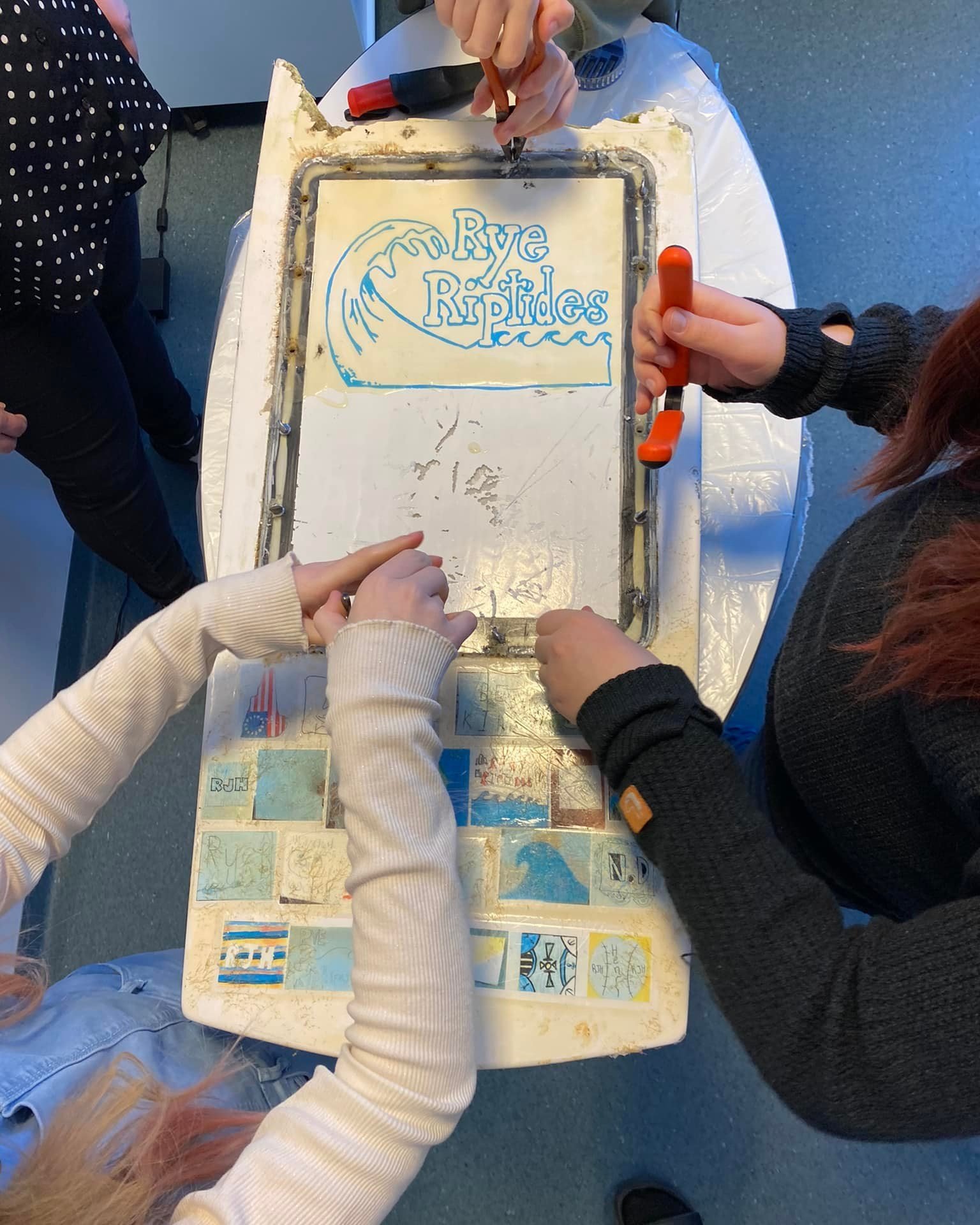This story brings a whole new meaning to the word friendshipship.
In October 2020, the middle schoolers of Rye Junior High, in Rye, New Hampshire, bid a bon voyage to their handmade mini-boat, which set sail off the coast of New Hampshire to who-knows-where.
Measuring only 5.5 feet, the “Rye Riptides” was indeed a small ship. It ran crewless, but carried a bountiful cargo of colorful artwork made by students, along with a GPS tracking device that reported the boat’s location … sometimes.
Cut to 462 days and 8,300 miles later, and what started out as a simple science project became a surprise discovery for some Norwegian sixth graders, and a fun new connection across the Atlantic.
Rye Junior High had partnered with Educational Passages, a nonprofit organization that aims to connect students around the world to the ocean and each other. Once the kit arrived, the kids started building while learning about ocean currents, science and math. However, science teacher Sheila Adams shares that the more artistic, right-brained activities equally found their way into the curriculum. “The students needed to use their writing skills to inform others about their mini-boat project, describe our school and town to people of other languages, just in case, and write requests to get the boat deployed,” she said in a release.

COVID-19 nearly threatened to knock the Rye Riptides off its course. The boat had been constructed, but not yet decorated, when students were moved to taking class online. Then, there was the matter of launching the boat. Which Cassie Stymiest, director of Educational Passages, noted was “challenging with all the restrictions in place.”
Luckily, creativity, resourcefulness and a little technology saved the day. Working remotely, each piece of art was done at home, then scanned, printed and made into a collage. Then, Ms. Stymiest connected with the Sea Education Association (SEA), which set the Rye Riptides on its journey.
Would the boat make it to Europe? Rye student Solstice Reed wasn’t so sure. “Honestly, I thought it would sink,” she admitted to the Portsmouth Herald. Considering the boat was cruising the ocean waters during hurricane season, the skepticism was well-founded. During the more tumultuous periods, the GPS signal only came in intermittently. And for a long while, there was nothing but radio silence.
But then, at long last, on the small Norwegian island of Smøla, the Rye Riptides successfully made it to dry land. Sure, it was a bit dismantled and covered in barnacles, but inside, all the adorable trinkets remained intact. The Smøla students peered with wonder into their bounty of photos, signed facemasks, fall leaves, acorns and state quarters, gifts sent out almost two years ago.
Isn’t your inner child just squealing with delight right now?
The voyage of the small boat went viral in a big way, sailing across social media, and making headlines.
Human connection found its way across the sea in the most wholesome and magical way. It’s really cool to see that educational programs like this exist, impacting both the hearts and minds of young students. Mission, successful.
To help support Educational Passages on even more wholesome adventures just like this one, consider donating here.
This article originally appeared three years ago.






























